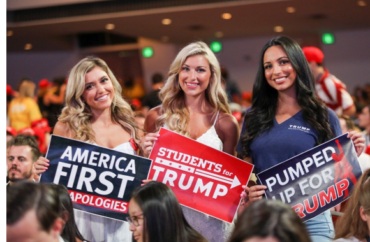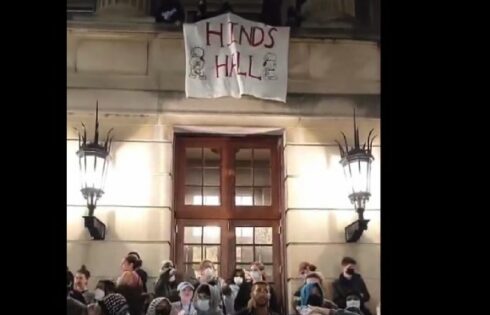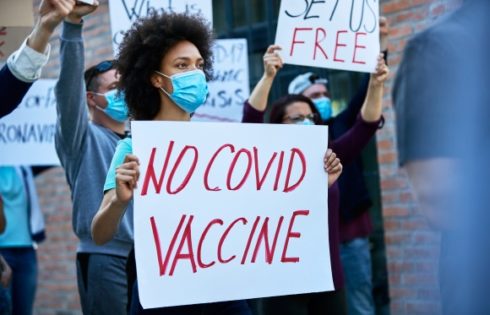
One school wants students to ‘gameplan’ for election night
With Election Day less than a week away, universities and faculty are preparing students for Tuesday’s results. Without explicitly saying it, they are worried about the possibility of another victory by President Donald Trump.
“Harvard’s Faculty Council launched preliminary discussions” in mid-October on “how to support students and faculty following next month’s presidential election,” the student paper The Harvard Crimson reported.
The Center for Research on Learning and Teaching at the University of Michigan published a guide on “Preparing To Teach about the 2020 Election (And After).” Though it does not explicitly state that the authors are concerned about President Trump, it unmistakably echoes liberal criticism of President Trump.
It explains that every discipline and academic department can educate students on the issues on the ballot:
Our students need to be able to critically evaluate the platforms of candidates and elected leaders. Every discipline is somehow implicated in these agendas and related policy proposals, whether the topic is health care; history, race, and the Black Lives Matter movement; education, immigration and the rights of refugees; fracking or climate change; gender inequality and LGBTQ rights; or international relations and the “war on terror.”
It also warns instructors to be mindful of student feelings and what is at stake during this election:
When preparing to discuss the election and its results, it is important for you to consider what is ‘at stake’ for the members of your classroom community. For example, students and instructors whose identities are repeatedly targeted or negatively represented can feel unsafe, unwelcome, and drained emotionally and intellectually by the rhetoric and realities of this election. This can and does include members of our U-M community who are are Black, Indigenous, Latinx, Asian American, Arab American, Muslim, migrants and immigrants, LGBTQIA, women, or people with disabilities. It follows then, that classroom discussions about the election have the potential to reproduce harm and magnify the stakes for targeted communities.
It’s not just the University of Michigan and Harvard that are preparing students.
MORE: Harvard student paper editors: Trump supporters endorse ‘white supremacy’
On Monday, Loyola University Chicago hosted an event on “Managing Election Expectations,” billed as a discussion on “possible outcomes and gameplan how to manage.” The event was co-hosted by the Catholic university’s School of Law and its Wellness Center.
Speakers included Jenna Silver, associate director of Student Services, and Mira Krivoshey, assistant director of Health Promotion at the Wellness Center.
The lightly attended event, at most there were 10 people on the Zoom presentation including the two presenters and myself, discussed ways students could take in election news in a safe way.
“How do you think the tenor of the country is going to affect how people feel the day after,” Krivoshey asked the attendees.
Students expressed “dread and anxiety” about the election and said it “has kind of put a strain” on their lives.
Krivoshey also discussed how students were talking about the election with family members that held different political beliefs.
“I have admittedly not been having difficult conversations with people, because that is my way of protecting my own energy and my own space,” one student said.
“I actually deactivate my Facebook, mostly because I couldn’t handle things my family was posting,” another student said.
Krivoshey encouraged students to limit news intake, set boundaries with friends and family and increase self-care.
MORE: Nearly 50% of Republican students say they have had a professor go on anti-Trump tangent
IMAGE: Students for Trump/Twitter
Like The College Fix on Facebook / Follow us on Twitter







Please join the conversation about our stories on Facebook, Twitter, Instagram, Reddit, MeWe, Rumble, Gab, Minds and Gettr.